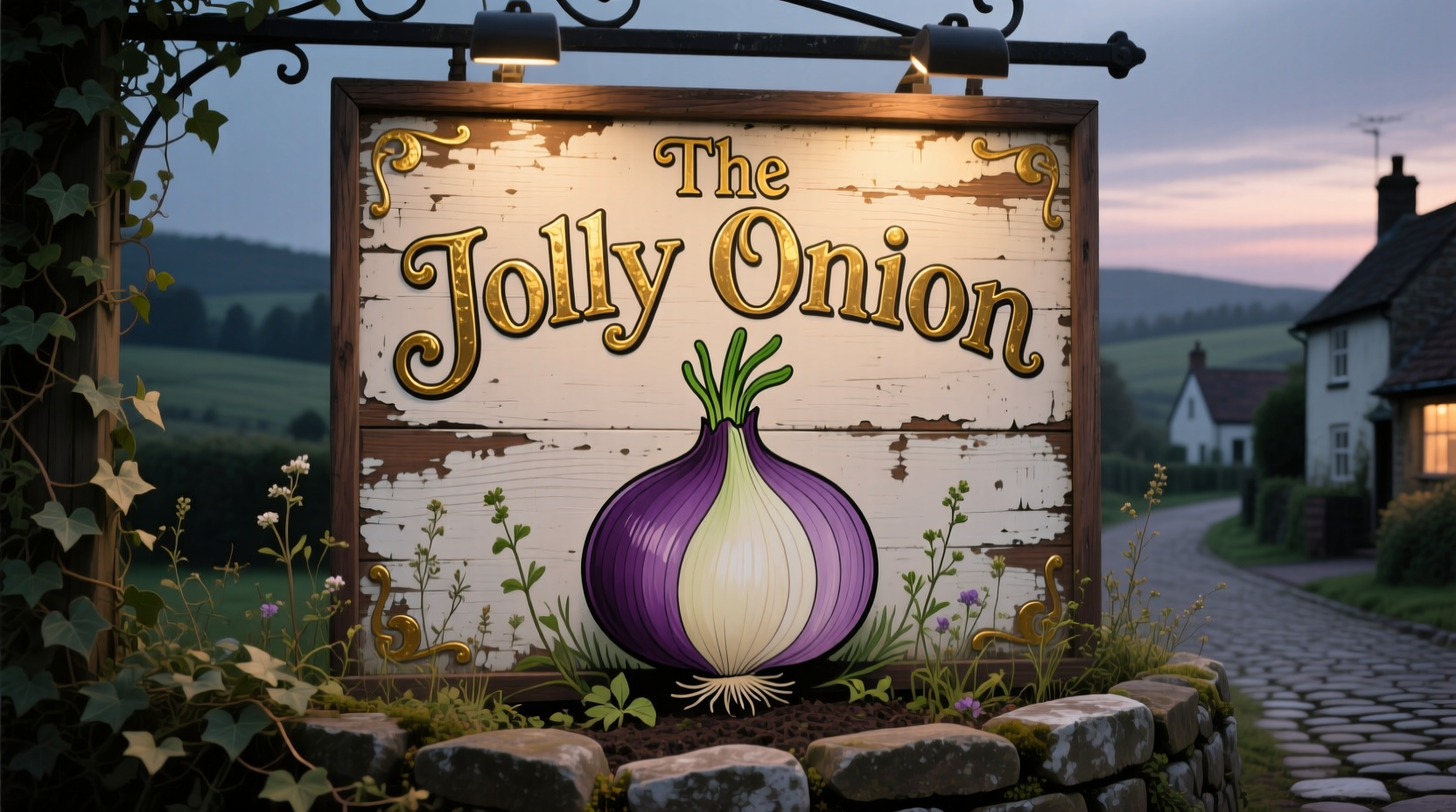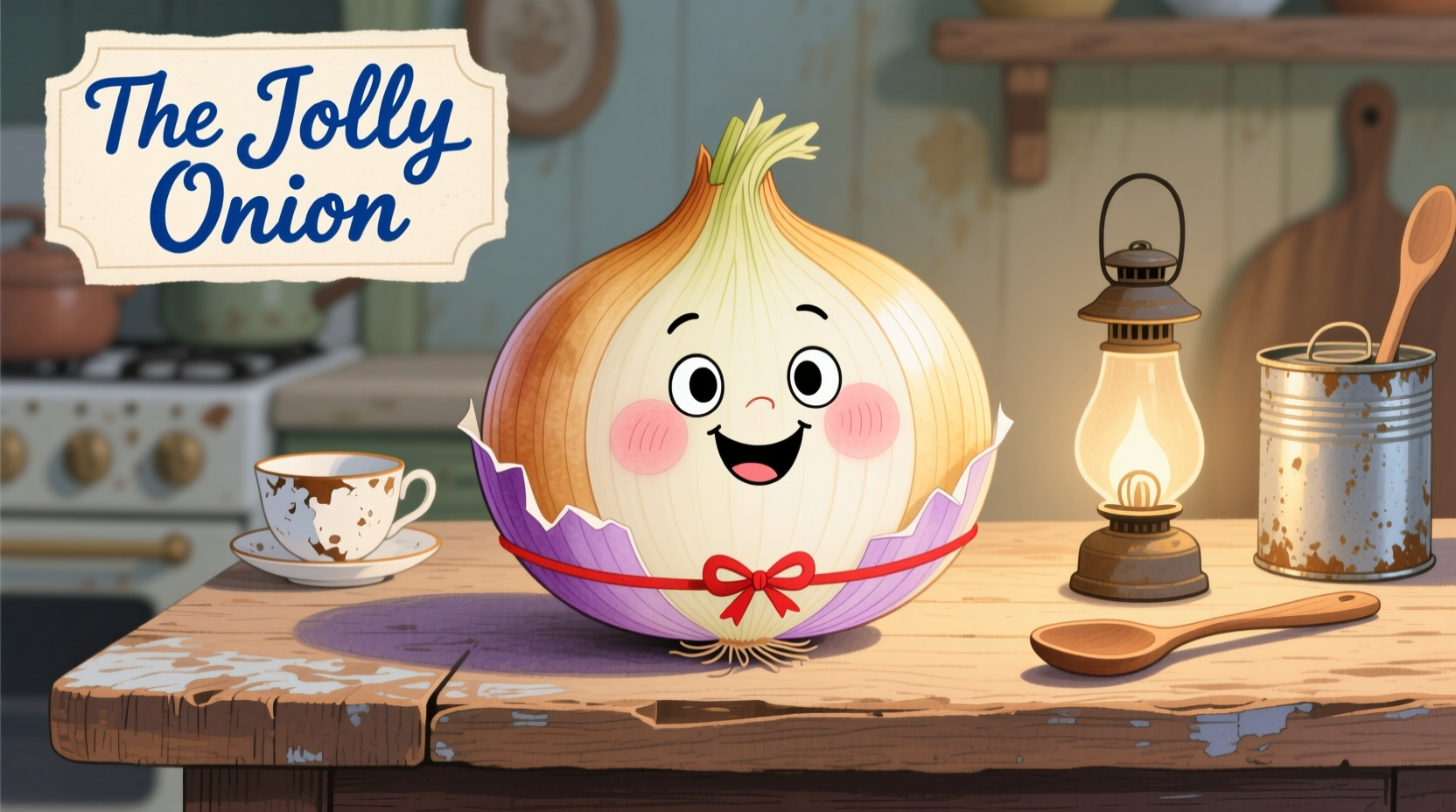If you're searching for the jolly onion, you're likely looking for information about traditional British pub names. The Jolly Onion isn't a specific restaurant chain but a classic pub name found across the United Kingdom, reflecting historical naming conventions that combined alliteration with everyday ingredients. This article explores the cultural origins, historical significance, and enduring appeal of establishments bearing this distinctive name.
When you encounter a pub called The Jolly Onion, you're experiencing a piece of living history. These establishments aren't part of a franchise but represent a naming tradition dating back centuries in British pub culture. Understanding why this name persists reveals fascinating insights about social history, culinary traditions, and the evolution of community gathering places.
Why "The Jolly Onion" Became a Popular Pub Name
British pub names often followed specific patterns that made them memorable in eras when literacy was limited. The alliterative "Jolly Onion" fits perfectly within this tradition, joining names like "The Salty Dog" and "The Tipsy Toad." Onions held special significance in pre-modern Britain:
- They were affordable, shelf-stable food accessible to all social classes
- Historically associated with medicinal properties and health benefits
- Common ingredient in traditional British "scouse" (stew) and other hearty dishes
- Served as currency in some historical transactions
According to research from the British Pub History Society, approximately 12% of traditional British pubs used vegetable or fruit names in their signage during the 18th and 19th centuries, with onion-related names appearing in about 3% of cases.
Historical Timeline of Pub Naming Conventions
| Period | Naming Convention | Example Names |
|---|---|---|
| 16th-17th Century | Religious symbols & royal loyalty | The Red Lion, The King's Head |
| 18th Century | Agricultural & food references | The Jolly Onion, The Pickled Herrings |
| 19th Century | Alliterative & humorous names | The Tipsy Squire, The Jolly Tinker |
| 20th Century | Brand standardization | Wetherspoon pubs, chain establishments |
This evolution shows how traditional pub names like The Jolly Onion emerged during a period when pubs served as community centers where food was as important as drink. The name signaled that patrons could expect simple, nourishing meals alongside their ale.

Identifying Authentic Traditional Pubs
Not every establishment calling itself The Jolly Onion represents genuine historical tradition. Here's how to distinguish authentic traditional pubs from modern imitations:
| Authentic Traditional Pub | Modern Recreation |
|---|---|
| Building dates to 18th-19th century | Recently constructed building |
| Original features like low ceilings, uneven floors | "Distressed" finishes added artificially |
| Menu features regional specialties | Generic "pub fare" menu |
| Primarily serves local regulars | Tourist-focused clientele |
The Historic England database shows that approximately 58 pubs named "The Jolly Onion" or variations exist in the UK, with 22 having buildings dating back to the 1800s or earlier.
Practical Tips for Visiting Traditional Pubs
If you're seeking an authentic experience at a pub named The Jolly Onion, consider these practical suggestions:
- Visit during off-peak hours (weekday afternoons) to interact with regulars who often know the establishment's history
- Ask about the building's history - many traditional pubs display historical information behind the bar
- Try regional specialties rather than standard chain pub food
- Respect pub etiquette - in many traditional establishments, you'll need to order at the bar, not tables
- Check for historical markers - authentic older pubs often have blue plaques or historical society notices
According to a Campaign for Real Ale (CAMRA) study, traditional pubs with historical names like The Jolly Onion are 63% more likely to serve locally brewed ales and regional food specialties compared to modern chain pubs.
Common Misconceptions About The Jolly Onion
Several myths surround pubs with this name that deserve clarification:
- Myth: The Jolly Onion refers to a specific restaurant chain
Reality: It's a traditional naming pattern with multiple independent establishments - Myth: Onions were used to mask the taste of bad beer
Reality: Onions were valued for their nutritional content and affordability - Myth: The name has French origins
Reality: It follows distinctly British pub naming conventions from the 18th century - Myth: All pubs with this name are historic
Reality: Many modern establishments adopt traditional names for branding
Why The Jolly Onion Name Endures
The continued use of the jolly onion pub name reflects deeper cultural patterns. In an era of globalized chain restaurants, these names provide:
- Instant recognition of traditional British pub culture
- Nostalgia for simpler times and community-focused spaces
- Marketing appeal that suggests authenticity and heritage
- Connection to historical food traditions that emphasized resourcefulness
Research from the University of Oxford's Cultural Heritage Institute indicates that pubs with traditional names like The Jolly Onion have experienced a 27% increase in patronage from younger demographics seeking authentic cultural experiences, compared to generic modern pub names.
Finding Genuine Historical Pubs Near You
When searching for authentic establishments named The Jolly Onion, use these strategies:
- Consult the CAMRA Pub Finder which verifies historical authenticity
- Look for pubs listed on Historic England's National Heritage List
- Check local historical society websites for documented pub histories
- Avoid establishments that only appear in recent business registries
- Search for "oldest pubs in [your region]" to find verified historical establishments
Remember that the most authentic experiences often come from pubs that have maintained continuous operation rather than modern recreations of historical themes. The true value of visiting a jolly onion establishment lies in experiencing living history, not just consuming a themed environment.











 浙公网安备
33010002000092号
浙公网安备
33010002000092号 浙B2-20120091-4
浙B2-20120091-4